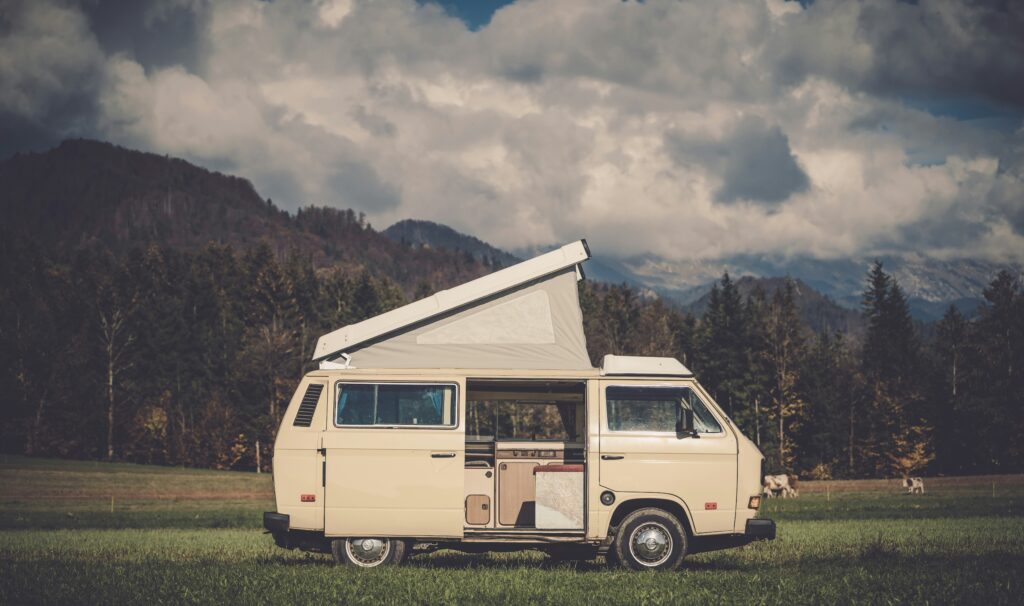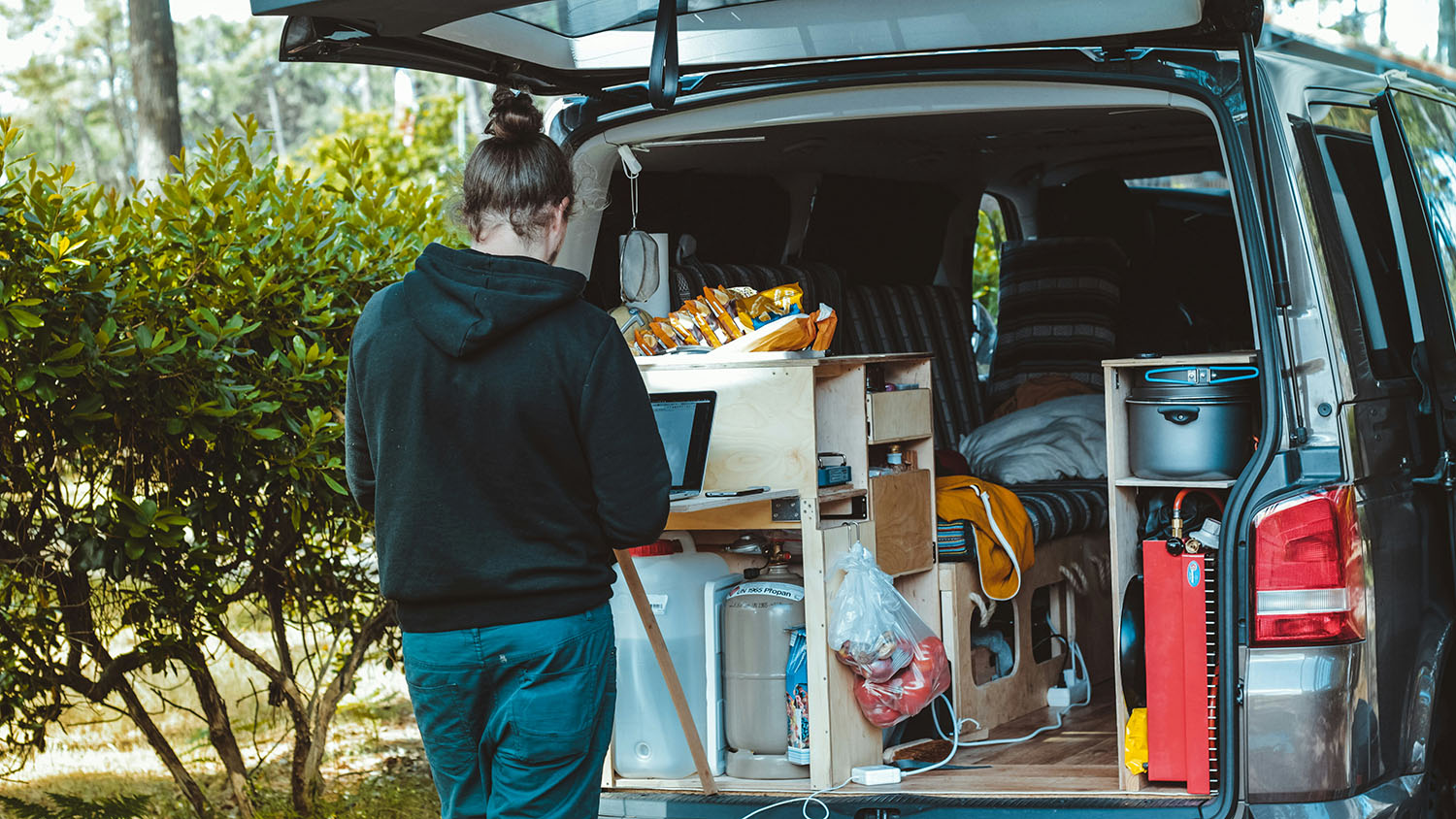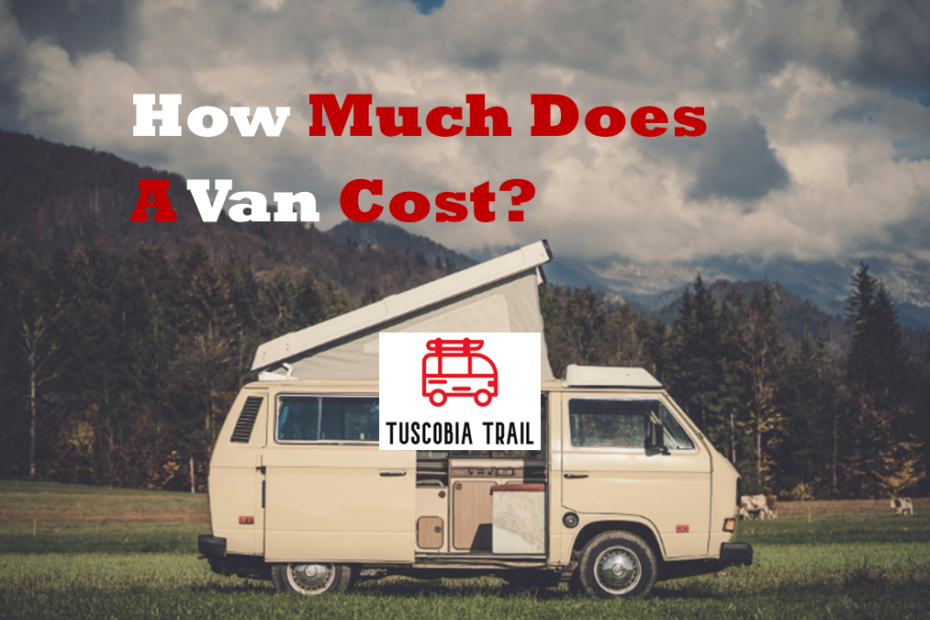Embarking on van life is a transformative experience, offering freedom and adventure on the open road. But how much does a van actually cost?
Finding the right van is crucial as it becomes your home, mode of transport, and the centrepiece of your new lifestyle and we share our top tips on getting the right van.
While costs can vary widely, from affordable pre-owned models to high-end new ones, vans are often seen as expensive due to van conversion costs and maintenance.
However, with careful selection and customization, your van can be an investment in a life less ordinary.
We’ve put together a pricing breakdown to help you figure out the cost of a van, whether you want a new one, pre-owned, or want to indulge in campervan conversions.
Overview of Van Prices – Factoring in Van Life Costs
Van life incurs various expenses, from the initial purchase to ongoing living costs. The van itself is a significant investment, and costs can vary widely depending on the model, age, and whether it’s equipped for life on the road.
Choosing between models like the spacious Mercedes Sprinter or the compact Ford Transit Connect can impact your budget significantly.
Professional builds offer convenience and quality but at a higher price, while DIY conversions can be a fraction of the cost but require more effort and expertise.
The complexity of the build and the materials used also influence the overall expenses, making it essential to consider both initial and long-term costs. Maintenance costs, conversion upgrades, and daily expenses also play a role in the financial commitment to van life.
How Should I Expect to Pay for a Van?
The price range of vans varies greatly, influenced by factors such as model, age, and level of conversion.
A used, bare-bones van might start as low as $10,000, while a new, state-of-the-art model with a professional build-out could climb above $200,000. Used RVs cost a little more.
Your budget and willingness to take on DIY projects will dictate where you fall on this spectrum, but remember it is more of a long term investment than renting a van for road trips.
The Impact of Van Type and Size on Cost
The type and size of your chosen van will significantly affect the cost. Larger and more robust models like high-roof sprinter vans come with a higher price tag but offer more living space and potential for amenities.
Alternatively, smaller models can be more cost-effective and easier to maneuver but may limit conversion options and comfort. You can read our van or minivan comparison for help on this.
New Van Purchase Considerations
When purchasing a new travel van, consider the cost of the vehicle itself and the potential for a professional build-out, which can add significantly to your total investment.
The Average Cost of a New Camper Van
New camper vans equipped with professional build-outs, such as solar panels and high-quality materials and components, typically range from $130,000 to $300,000.
Factors influencing cost include the van model, with Mercedes Sprinter and B RV options often at the higher end, and the customization level of the professional build-out.
Brand-Specific Price Breakdown
Brand choice can have a substantial impact on your van purchase. Each brand has its reputation for quality and associated costs, influencing both upfront expenses and long-term value.
Camper Vans: Examples
Ford Transit Connect camper vans are a popular choice for their reliability and moderate pricing.
When equipped with solar panels and a professional build-out, costs vary greatly, depending on the quality of van models and materials and components used.
A new Transit Connect can be a more budget-friendly option compared to luxury van models.
Mercedes Sprinter high-roof models are top-tier choices for camper van conversions, offering ample space and premium quality.
These vans command a higher price due to their robust construction, reputation for durability, and the popularity of comprehensive conversions that cater to a luxurious life on the road.
Second-Hand Van Market
The used van market presents opportunities for savings, though prices can still be influenced by demand, condition, and the level of conversion.

The Average Cost of a Used Camper Van
Costs for a used camper van can vary significantly. While older models may be found for under $25,000, newer vans with professional builder input can approach their original retail price.
DIY van conversion projects offer a cost-saving route, while vans from professional builders hold their value well, especially models like the Mercedes Sprinter.
Evaluating Depreciation and Resale Value
Understanding the depreciation and potential resale value of your van is critical. Some vans depreciate slower than others, maintaining their worth over time, which can affect both your initial investment and future selling price.
Van Conversion Essentials
Campervan conversions are another option digital nomads opt for. When it comes to converting your van, the choice between a DIY project and a professional van conversion will influence both cost and outcome.
How Much Does It Cost to Convert a Van?
Converting a van to suit life on the road is one of the biggest expenses you’ll encounter.
Costs vary greatly, particularly depending on the type and model of the van, with rough estimates starting at around $41,000 for a Dodge Promaster and reaching upward of $66,000 for a Mercedes Sprinter.
The cost of the van, materials, and labor all contribute to your overall van purchase and conversion expenses.
DIY vs Professional Van Conversions
Deciding between a DIY or a professional van conversion is a significant choice. While DIY builds may reduce costs and offer personal satisfaction, they demand time, skill, and resources. A professional van conversion, on the other hand, ensures quality, expertise, and a warranty, albeit with a higher upfront expense.
Feature-Specific Conversion Costs
Whether choosing DIY or professional conversion services, individual features like high-end power systems or composting toilets can vary greatly in cost. It’s essential to prioritize needs and allocate your budget accordingly.
Van Conversion Features And Their Costs
When considering van conversion features and their costs, items like a reliable power system or a composting toilet are crucial but can be significant investments. Careful planning and budgeting are key to managing these expenses.
Climate Control and Insulation
Proper climate control and insulation in a van conversion are critical for comfort. The cost varies greatly depending on the materials and systems used, but investing in quality options pays off in the long term with lower energy costs and better temperature regulation.
Solar and Electrical Systems
Solar panels and electrical systems are at the heart of an off-grid van life. While the initial investment varies greatly, they provide long-term savings and independence. Choose quality components for efficiency and durability.
Kitchen and Appliances
A well-equipped kitchen with quality appliances is essential for van life. The cost varies greatly depending on whether you opt for compact, energy-efficient models or more standard household appliances, as well as the complexity of the installation.

Recurring Expenses in Van Ownership
Van ownership brings recurring costs beyond the initial purchase and conversion, such as vehicle maintenance, state park fees for overnight stays, and questions about van life expenses that need careful budgeting to ensure sustainable van living.
Gas and Maintenance
Gas prices fluctuate and can be a significant expense, especially if your van has a thirst for diesel. Regular vehicle maintenance is also crucial to avoid costly repairs down the road, making these two of the most steady van life expenses you’ll encounter.
Insurance (RV and Health)
Insurance is a non-negotiable expense, with RV insurance covering your home on wheels and health insurance protecting you. Expect to budget around $100 or more each month for these combined insurances, depending on coverage levels and personal circumstances.
Connectivity Costs (Phone Bill, Internet)
Staying connected is vital for van lifers, especially if you work online. Budget for a robust unlimited data plan to avoid overage charges. Connectivity costs, including phone and internet, can easily reach $100 or more per month, depending on the service provider and plan.
Living Expenses (Groceries, Gym Membership)
Day-to-day living expenses for van lifers include groceries and self-care. Memberships to nationwide gyms like Planet Fitness or 24 Hour Fitness provide shower facilities and a place to stay fit, adding to your monthly budget but offering nationwide convenience.
Cost Analysis of Popular Conversion Choices
When you’re deciding between a DIY or professional van conversion, consider your budget and skill set. A DIY approach can be cost-effective if you’re handy and have time to invest in learning new skills.
However, bear in mind that professional conversions, while pricier, offer expertise, efficiency, and often a warranty. Ultimately, your decision will impact your budget and overall experience. So choose the path that aligns with your resources and comfort level with potential challenges.
Professional Van Conversion Examples and Costs
Van conversion companies offer a range of options, from basic installations to luxury customizations. The cost breakdown typically includes labor costs, materials, and complex systems such as electrical systems. Incorporating features like natural light through skylights or windows may add to the expense.
Being financially stable enough to afford professional services means you’ll benefit from their experience and avoid the pitfalls of DIY projects. However, always request a detailed quote to understand all associated costs and ensure they align with your budget and desired outcome.
Comparing Conversion Costs Examples: Sprinter, Transit, and Promaster
Conversion costs can vary widely depending on the base vehicle. A Mercedes Sprinter conversion, known for its quality and durability, may come with higher conversion costs than a Ford Transit or a Ram Promaster.
When comparing, consider not just the initial price but also the long-term value, as a cheaper conversion may lead to higher maintenance costs down the line. Analyze each model’s features and conversion potential to ensure the best fit for your van life needs and financial plan.
Post-Purchase Considerations
After purchasing your camper van, be prepared for ongoing expenses. Beyond the cost of fuel and routine maintenance, consider the need for occasional repairs and upgrades. If you’ve opted for a conversion, account for the wear and tear on custom features.
Remember to set aside funds for unexpected issues to maintain your van’s reliability and comfort on the road. Planning for these post-purchase costs is essential for a stress-free van life experience.
Long-Term Value and Camper Van Appraisals
Maintaining the long-term value of your campervan is essential, whether you plan to live in it full-time or eventually sell it. Regular maintenance, careful use of amenities like a portable toilet, and staying up-to-date with mechanical check-ups can help preserve its value.
Appraisals are important when insuring your van or considering resale, so keep detailed records of all upgrades and maintenance to ensure you receive a fair evaluation of your investment.
Making an Informed Decision: Questions to Ask Before Purchasing a Van
Before buying a van, inquire about its history and suitability for your needs. An empty van may offer a blank canvas for customization, but ensure it’s mechanically sound. Ask if it comes with any essentials for van life, like a propane stove, and factor in the cost of adding or upgrading these features.
Your diligence before purchase can save you from costly mistakes and help you find a van that suits your lifestyle and budget.
Why Are Van Conversions So Expensive?
Van conversions carry a hefty price tag due to the expertise, labor, and quality materials involved. Customizations that turn a van into a comfortable living space, like insulation, cabinetry, and electrical work, require skilled craftsmanship.
The cost also reflects the complexity of the design and the value of having a functional, mobile living space. While expensive, a professional conversion can ensure safety, reliability, and comfort on the road.
Navigating the Van Market Successfully
Saving money on your van purchase and conversion is possible with strategic choices. Prioritize essential features, opt for gently used or refurbished items, and consider a phased conversion approach.
Research and compare prices, and don’t shy away from negotiating with sellers. By being informed and flexible, you can find ways to reduce costs without compromising on the quality and functionality of your van.
Financing and Budgeting for Van Life
Effective budgeting is crucial for sustaining van life. It’s important to track all expenses, from conversion costs to daily living, to ensure your lifestyle is financially viable. Planning for unexpected costs can also help keep you on the road longer.
Can You Finance A Camper Van Conversion or Pay Upfront?
Whether to finance a camper van conversion or pay upfront depends on personal financial situations. Financing can spread the cost but adds interest, whereas paying upfront avoids debt but requires a significant initial outlay. Consider your options carefully.
Creating a Sustainable Budget for Van Living
As van lifers, it’s crucial to understand that van life cost varies significantly, but with proper planning, you can control expenses. To manage monthly van life costs effectively, factor in variable expenses such as gym memberships and health insurance.
By choosing free camping overpaid campgrounds and cooking meals over dining out, you can significantly reduce your outgoings. A sustainable budget aligns with your travel style and income, ensuring you can enjoy the journey without financial strain.
Budgeting for Van Life
When living in a van, expenses can be more variable than paying rent in a traditional home. To budget effectively for van life, consider the cost of van life essentials like maintenance, fuel, and campground fees.
For older vans, set aside a contingency for repairs. Aim to keep your living expenses within a manageable percentage of your income to ensure you can sustain your van full-time comfortably and securely.
Conclusion: Van Lifestyle Worth the Investment
Deciding if the van lifestyle is worth the investment involves weighing the freedom of life on the road against the hidden costs that come with it.
Opting for a converted Sprinter gives you a custom living space tailored to your needs. But it’s important to consider the cost of a van conversion and ongoing expenses, like gas mileage and RV insurance.
While living on the road can be thrilling, hitting the road also means being mindful of parts of the build, campsites cost, and maintaining the interior of your van.
Ultimately, if the idea of a mobile life filled with adventure outweighs the monetary investment and upkeep, then yes, the van and conversion can be a worthy investment for you.
